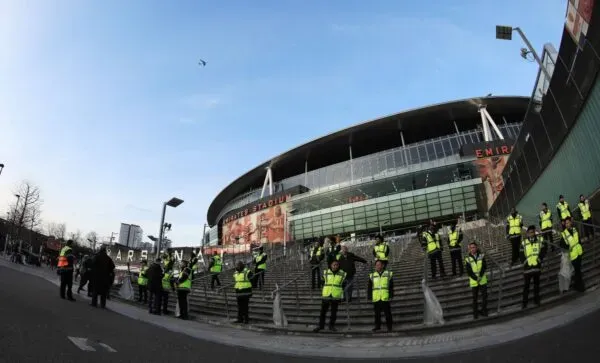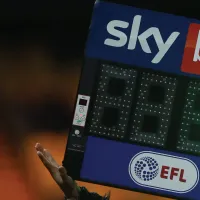A soccer game can be postponed for a variety of reasons. Bad weather, safety or health concerns, and sadly violence, tragedy, or political unrest can also throw a wrench in the diversion of sport. But what is done when that happens? It depends on the situation.
Why a soccer game can be postponed
The most common cause a game can be delayed or canceled entirely is inclement weather.
Heavy rain or snow can cause havoc on a field, grass or artificial – and make playing conditions unsafe. When lightning is in the picture, whether there is precipitation or not, it’s a no-go for obvious reasons. Players, staff, and fan safety are ahead of anything else, and dangerous conditions will get a game called off.
To the extreme, natural disasters such as hurricanes can see games moved from their original start time to avoid the dangerous situation altogether. Other events like earthquakes, fires, or even volcano eruptions could also cause matches to be postponed.
Of course, all of soccer, and the world, was postponed when the COVID-19 pandemic hit in 2020. But sometimes things less drastic can see a match canceled if a bug runs through a certain team’s locker room and has everyone sick.
Then you have human-caused postponements. Fan violence or a tragedy of some sort affecting one of the teams or their community can certainly stop a match. Political unrest and other situations that could make staging a game unsafe in a given location can also put a halt to regularly scheduled games.

Postponement procedures
Depending on the timing and circumstances, a few different things can happen if a game cannot be played as normal.
Before a match kicks off, if needed the kickoff time and/or date can be moved to accommodate the specific situation.
When this happens, the game goes on as normal, just at a different time.
Sometimes, however, a match or matches might be canceled entirely. For example, in the 2001 MLS season, the final week was canceled, and matches were not re-scheduled, in the wake of the September 11th attacks. This caused the final standings to be determined by points per game instead of total points, as not every team had played the same amount of games.
After a match has started, things get a little trickier. Sometimes, games are forced to be abandoned after kicking off.
In certain cases, the game is replayed from the start at a different date.
Other times, however, a match is stopped and picked back up from right where it left off. This happened this past summer in the Leagues Cup. FC Cincinnati was playing Chivas de Guadalajara, and FCC was up 2-0 in the 60th minute. The game was suspended due to bad weather, and the final 30 minutes were played the following day.
In the end, often it’s up to competition and team officials to sort out how to handle these situations.
As a fan or player, nobody wants to see a scheduled match called off or stopped. But unfortunately, factors outside anyone’s control can put a stop to the action. Here’s hoping all the games that you’re interested in go on as scheduled.
Photo: Imago















